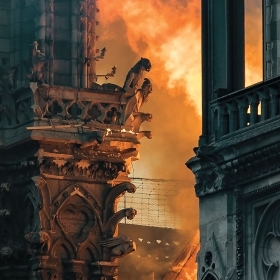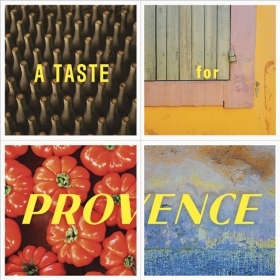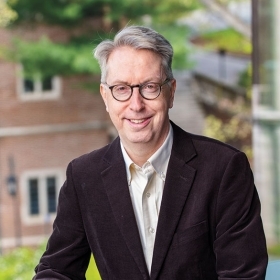French Professor Venita Datta can’t visit Paris right now, but if she could, she would take you, and her students, on a tour of her Paris, starting in the 16th arrondissement, where she rented rooms as a graduate student.

Photo by Lisa Abitbol
French Professor Venita Datta can’t visit Paris right now, but if she could, she would take you on a tour of her Paris, starting in the 16th arrondissement, where she rented rooms as a graduate student; then to the Left Bank, where she attended classes; and finally to the Marais, where she did research for her thesis at the Bibliothèque Historique de la Ville de Paris. Along the way, she would point out the warp and weft of history, interwoven with thought and culture, that make up the fabric of the city—all of which led her to a career as a French cultural historian.
“When I lived in Paris, I would walk around thinking, I am in one of the most beautiful cities in the world and there are so many layers of history that I’m walking by every single day,” she says. “I found that very exciting.” This spring, she shared that excitement with students in a course on the ways in which Americans like her have been influenced by the City of Light—and how they have influenced Paris in turn.
Datta and American studies professor Paul Fisher, her co-teacher for the course, covered all “the usual suspects”—Ernest Hemingway and Gertrude Stein, James Baldwin and Josephine Baker—as well as those often overlooked by the tourists guides and textbooks, such as the many African American soldiers who helped liberate France at the end of World War II.
“Paul Fisher and I always say, this is not your grandmother’s class on Americans in Paris, because we’re talking about race. We’re talking about class. We’re talking about gender. We’re talking about sexuality,” says Datta. “We wanted to bring the class into the present day, so we have food blogger David Lebovitz along with Julia Child. Our joke was that this is the only class that has Malcolm X and Julia Child on the same syllabus.”
The course examines not only the American individuals but also the American institutions that have come to France, including Buffalo Bill’s Wild West Show in the late 19th century and McDonald’s and Disneyland in the 1990s. Its material draws deeply from the professors’ own research. Fisher has written extensively about Henry James and John Singer Sargent—both Americans with strong ties to Paris. Datta is currently working on a book about the American influence on what it meant to be “modern” in fin de siècle France through the lens of four famous figures—the inventor, the explorer, the reporter, and the celebrity politician.
The last time the pair taught the course (in 2017), they were able to take the entire class on a research trip to Paris over spring break, thanks to generous grants from the College. Of course, that’s out of the question this year; the class is being taught entirely remotely. Instead, for their first assignment, students were asked to design a guided tour of the Paris they would visit if they could. Some retraced the footsteps of famous writers and artists, while one mapped out “Black Paris” and another “gay Paris.”
“What’s really wonderful in this class is that we have students who are coming from two different disciplines: from American studies and from French studies, and they have different bases of knowledge,” Datta says. “This cross-fertilization of students who have two different perspectives is really terrific, and they teach each other as much as they teach us.”
[substory:1]


